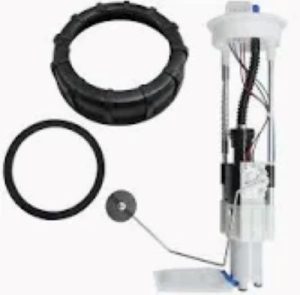Detecting Fuel Pump problems in older cars requires attention to specific symptoms and regular diagnostic testing. Older vehicles, typically those over 10 years or with more than 100,000 miles, are more susceptible to fuel pump issues due to wear and tear. A common sign of trouble is difficulty starting the engine. A failing fuel pump may not provide the necessary pressure, often requiring multiple attempts to start the car. For example, in a 1998 Honda Accord, a fuel pressure of less than 30 psi upon start-up means the pump is close to failing.
Other warning signs include malfunctioning engine performance such as misfires, hesitation, and stalling. Early 2000s Chevrolet Silverados have developed hesitation during acceleration due to irregular fuel flow. The National Institute for Automotive Service Excellence has reported, through its studies, that stalling of vehicles with more than a few years on the road is contributed to by problems in fuel delivery due to malfunctioning pumps 20% of the time.
An abnormal or strange noise is an issue that can be easily figured out by listening for any anomalies. A good fuel pump hums softly once the ignition is turned to the “ON” position. On the contrary, a noisy or whining pump indicates that it is straining-as many Ford Taurus owners bear witness to-and might mean an impending clog of the filter or a failing internal motor.

Using a fuel pressure gauge to test the system is one surefire diagnostic method. Hook up the gauge to the fuel rail and compare the reading to the manufacturer’s specifications. For example, an older Toyota Camry typically requires 40-50 psi of fuel pressure. Readings significantly lower than this range suggest pump inefficiency or blockages in the fuel line.
Also important is the inspection of the fuel filter, since clogged filters make the pump work harder, accelerating its wear. Replacement every 30,000 miles can prevent damage and extend pump life. A Bosch Automotive report says that 15% of all pump failures are because of clogged filters, especially on high-mileage vehicles.
Other common electrical issues in older cars include corroded wiring and a failing fuel pump relay. Sometimes, the relay may fail to supply power to the pump, thus making it operate erratically. Testing the relay using a multimeter ensures the pump gets a consistent 12-volt supply. For instance, the Ford Explorer develops sudden engine shutdowns when the relay terminals are corroded; cleaning or replacement solves the problem.
Poor fuel quality is another factor to consider. Older cars are more prone to damage from debris or water in the fuel tank. In a 2001 Nissan Altima, debris accumulation caused by years of refueling at unreliable stations can clog the fuel pump strainer, restricting fuel flow. Flushing the tank and cleaning the strainer can restore proper operation.
Proactive inspection and maintenance of the fuel pump, fuel filter, and fuel lines will ensure dependability in older vehicles. For durable and high-performance replacement parts, visit Fuel Pump, where quality products are designed to meet the demands of aging fuel systems.